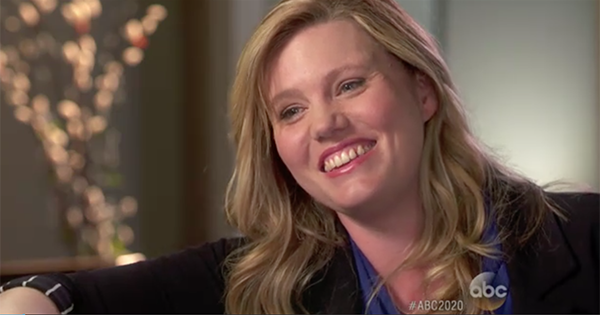The Resilience of Jaycee Dugard: Overcoming Kidnapping, Years of Abuse

*Photo credit: ABC News
Jaycee Dugard was 11-years-old when she was kidnapped from her South Lake Tahoe, California neighborhood. She was held captive in a backyard shed for 18 years and managed to survive her incredibly horrific experience. After enduring so many years of trauma, it can be hard to think how anyone could heal and move forward from such a dark and sad time, but psychologists recognize that humans are capable of adapting and overcoming risk and adversity. People and communities are able to rebuild their lives even after devastating tragedies.
Dugard recently sat down for a third interview with ABC News’ Diane Sawyer to recount how she survived such a horrific experience and how different her life is now after her years in captivity. Her captor Phillip Garrido was a convicted sex-offender who should have been in prison for a previous abduction and rape. He was sentenced to 50 years in prison, but was released on parole after serving just 11 years. On a June morning in 1991, he and his wife Nancy drove up to Dugard as she headed for the school bus and used a stun gun to immobilize her. Nancy held Dugard down in the backseat of the car as they drove away. The little girl was handcuffed, stripped of her clothes and hidden away in a soundproof shed in the Garridos’ backyard. Years of sexual abuse ensued and Dugard gave birth to two daughters while held prisoner. Garrido repeatedly made threats and warned Dugard not to escape or use her real name.
While on parole, officers visited the house 60 times to check on Garrido, never checking the backyard where Dugard was held captive. Garrido also wore a GPS tracker which revealed the numerous visits he made to the backyard, but the device was not monitored closely by officers at the time.
Dugard and her daughters were rescued in 2009 after Garrido brought them to the University of California-Berkeley campus. A campus security officer reported that Garrido was acting suspiciously, and after hours of questioning from the parole officer, Dugard revealed her true identify. Phillip was sentenced to 431 years in prison for kidnapping and sexual assault. Nancy was also sentenced to 36 years to life in prison. Because the California Department of Corrections and Rehabilitation repeatedly failed to properly supervise Garrido, Dugard was awarded $20 million from state of California.
In 2011, Dugard released her first bestselling book, “A Stolen Life: A Memoir,” which detailed her horrific experience in “the prison backyard.” Now at age 36, Dugard released her second memoir on July 12 called, “Freedom: My Book of Firsts,” which highlights how she is reacclimating to society.
Watch Dugard’s interview with Diane Sawyer which aired Friday, July 8 on 20/20 ABC News.
While in captivity, Dugard would constantly think about her mother, a positive reminder of the safe, loving home she once had. The positive experiences she had as a child before her abduction are the reason she was able to survive and move past such a horrific experience. This resilience can be likened to a scale that can tip to one side or the other. The positive experiences we have during childhood are stacked on one side of the scale, while negative experiences including poverty, abuse and mental illness are stacked on the other side. The fulcrum, or balance point of the scale, can shift based on our ability to withstand negative experiences and determines where the scale is more likely to tip. When the scale tips positive, even though it’s stacked with negative weight, that’s resilience.
Since her rescue, Dugard has worked with therapist Dr. Rebecca Bailey to regain her confidence. She laughs, sings and even has hopes to find love in the future. Bailey reinforces with Dugard that “those things happened to her; they’re not who she is.”
Learn more about resilience and the core story of healthy brain development, or about KVC Hospitals’ involvement in building a Resilient KC.




